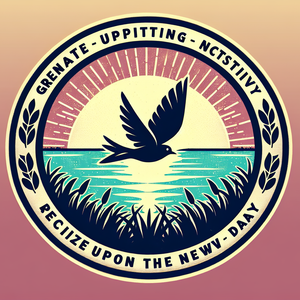From Employee to Entrepreneur: The Lease Purchase Journey

Transitioning from a company driver to a lease purchase operator is a significant decision that requires a willingness to embrace risks and the determination to take control of one’s professional destiny. The lease purchase model allows drivers to operate their own vehicles, often with the option to purchase the truck after a set period. This journey typically involves several key steps: 1. **Researching the Lease Purchase Model**: Before diving in, prospective lease purchase operators should understand how these agreements work. This includes familiarizing themselves with the terms, conditions, and obligations involved. Knowledge is power, and a thorough understanding can help prevent potential pitfalls. 2. **Financial Assessment**: Transitioning to lease purchase often requires a considerable financial outlay. Drivers must evaluate their financial health, including their credit score, savings, and ability to manage monthly payments. Creating a detailed budget that accounts for all expenses—truck payments, fuel, insurance, maintenance—is essential. 3. **Choosing the Right Company**: Not all lease purchase programs are created equal. Drivers should investigate various trucking companies that offer lease purchase options, comparing contract terms, pay structures, and support services. Finding a reputable company with a solid track record can significantly impact the success of the venture. 4. **Developing a Business Mindset**: Transitioning to a lease purchase operator means stepping into the role of a business owner. Drivers must cultivate a business mindset, focusing on profitability, customer service, and operational efficiency. This shift in perspective can be challenging but is vital for long-term success.
Financial Considerations and Challenges
While the potential for increased earnings can be enticing, it’s important to consider the financial implications of lease purchase agreements. Drivers often face upfront costs such as a down payment and ongoing expenses that can quickly add up. Key financial considerations include: - **Maintenance and Repairs**: As independent operators, drivers are responsible for the upkeep of their vehicles. This can lead to unexpected expenses, making it crucial to have a reserve fund for repairs and maintenance. For instance, a blown tire or engine malfunction can be costly and disrupt cash flow. - **Insurance Costs**: Commercial truck insurance can be significantly more expensive than personal auto insurance. Drivers must shop around for the best rates and ensure they have adequate coverage. This is particularly important as insurance is a non-negotiable expense that can significantly impact profitability. - **Variable Income**: Unlike traditional employment, income as a lease purchase operator can fluctuate based on freight availability, operational efficiency, and market conditions. It's essential to have a financial cushion to navigate lean periods, as drivers may face times when freight is scarce.
Personal Anecdotes
Many truck drivers who have successfully transitioned to lease purchase operations share inspiring stories of resilience and growth. For instance, John, a former company driver, recounts how he took the plunge after three years of driving for a logistics firm. "I was tired of working long hours for someone else’s profit," he recalls. "When I found a reputable lease purchase program, I knew it was my chance to build something of my own." John's journey wasn’t without challenges. He had to learn the ins and outs of truck maintenance, budgeting, and even customer relations. However, the rewards were worth it. After two years of hard work, he was able to pay off his truck and now enjoys the freedom and flexibility of being his own boss. Similarly, Sarah, another lease purchase operator, emphasizes the importance of networking and mentorship. "I reached out to other drivers who were doing it successfully. Their advice and support were invaluable," she shares. "It’s not just about driving; it’s about building relationships and learning from others." Sarah’s experience highlights the significance of community and support in navigating the challenges of entrepreneurship.
The journey from employee to entrepreneur through lease purchase agreements is filled with opportunities, challenges, and personal growth. For many truck drivers, this transition offers the chance to take control of their careers, achieve financial independence, and build a legacy. While the road may be fraught with obstacles, the stories of those who have successfully made the leap serve as powerful reminders that with the right planning, mindset, and support, the dream of owning a trucking business is within reach. Aspiring lease purchase operators should focus on understanding the journey, preparing for the financial realities, and learning from the experiences of others. By doing so, they can pave the way to a fulfilling and prosperous career in the trucking industry—where the open road leads not just to destinations, but to new horizons of independence and success.
Lease Purchase Truck Driver
Prime Inc., Schneider National, Swift Transportation
Core Responsibilities
Operate a commercial truck under a lease purchase agreement, managing both driving and business operations.
Maintain accurate records of mileage, expenses, and maintenance to assess profitability.
Build and maintain relationships with clients and freight brokers to ensure consistent loads and income.
Required Skills
Strong knowledge of trucking regulations and safety standards.
Financial literacy to create and manage budgets effectively.
Excellent communication and negotiation skills.
Fleet Manager
JB Hunt, Werner Enterprises, Knight Transportation
Core Responsibilities
Oversee the operations of a fleet of trucks, managing schedules, maintenance, and driver performance.
Implement cost-control measures and optimize routes for efficiency and fuel savings.
Ensure compliance with DOT regulations and safety standards.
Required Skills
Proficient in fleet management software and logistics planning.
Strong leadership and team management abilities.
Analytical skills to evaluate fleet performance metrics and make data-driven decisions.
Truck Maintenance Technician
Penske Automotive Group, Ryder System, local trucking companies
Core Responsibilities
Perform regular inspections and maintenance on commercial trucks to ensure safety and reliability.
Diagnose and repair mechanical issues, including engine, transmission, and electrical systems.
Maintain records of service and repairs to comply with industry regulations.
Required Skills
In-depth knowledge of truck mechanics and repair techniques.
Certification from a recognized program (e.g., ASE certification) preferred.
Attention to detail and strong problem-solving skills.
Freight Broker
C.H. Robinson, XPO Logistics, TQL (Total Quality Logistics)
Core Responsibilities
Act as an intermediary between shippers and carriers to facilitate the transportation of goods.
Negotiate contracts and freight rates while ensuring compliance with regulations.
Build and maintain relationships with trucking companies to secure capacity for shipments.
Required Skills
Strong negotiation and sales skills to effectively close deals.
Knowledge of logistics and supply chain management.
Excellent organizational and multitasking abilities.
Transportation Safety Manager
Large logistics firms, freight carriers, and transportation companies
Core Responsibilities
Develop and implement safety policies and procedures for transportation operations.
Conduct safety audits and training programs to ensure compliance with federal and state regulations.
Analyze accident reports and safety data to identify trends and recommend improvements.
Required Skills
Comprehensive understanding of OSHA regulations and DOT compliance standards.
Strong analytical skills to interpret safety data and make informed decisions.
Excellent communication skills for training and reporting purposes.


